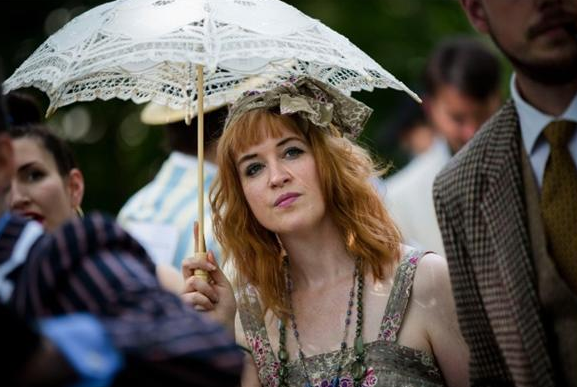Ian M Banks calls it the 'R word' and says his wife knows not to go near when he's stuck in the middle of it.
Hilary Mantel does a huge amount of it first.
Patricia Highsmith writes the book first and then goes back and finds out what she needs to know to make the book as close to reality as she can, though as ever realty is a relative term.
I'm probably with her when it comes to research, not that I would dare to disagree with the great Mantel on anything, but simply because my life is not that organized. If I had published several novels and were working on the third part of a trilogy, then I like to think I'd be doing the same as her, but I know I probably still wouldn't.
Right now I am working on my book set in 1940's Paris, and I've written about 75,000 words with the key scenes mapped out, and have spent all day worrying about Geography. I don't have the budget to actually go there and take a look around, so I've been using google earth and worrying about the balance between fact and fiction. I'm always painfully aware that my life experience is more cerebral than physical, in some senses, in that I have thought more widely than I have gone, but I want to create a world which has the illusion of reality. I've found this beautiful cinema in Paris, another of the city's hidden gems, and I want to base the theater in my book around it.
I find it, I love it, then I go through the usual thought processes. People who know it will know that it's not a cabaret theater, will that ruin their enjoyment of the book? How closely do I go into the why and wherefores, how close can I go before I am rumbled? I start trying to find who might own the shops either side of it, if they might have been similar in 1940, can I down load a floor plan and if I were to walk from there to a house on the other side of the Seine, how long would it take me, especially if I were a wounded American airman following a show girl home.
Then, I have to make myself stop and remember the advice given me by one of the lecturers at the writers Festival - "There will always be holes in your plot, the key is to make it so that the reader doesn't see them.'
I also remind myself of string theory, which is that of the mulitverse - that there are an infinite number of universes all co-existing and not existing at once, and at every single moment we travel between them unaware that we've moved from one to the other. This means that all eventualities are possible, it's just that we're only ever aware of one - but it's quite easy then to believe that in an alternate universe only a few clicks from ours, La Pagode in the Rue Babylone really was a cabaret theater, and that the star of it was an English woman who'd adopted French nationality and false papers and married the director of music to hide both her sexuality and her identity - which stops me from spending an hour trying to download the floor plan of the cafe next door. This is the main problem with research - there are times when it becomes distraction and gets in the way of the writing.
My advice?
1) Write about what you know, but don't under estimate what you do know.
2) Use google earth - sometimes just seeing the place will give you more information than you can get from an hours reading.
3) Remember this is not and exam but a theatrical production, if your characters are strong then they can work against the simplest of backgrounds, so try and stage crucial scenes with minimal description - three brush strokes can allow the reader to create the image in their mind easier than whole oil painting.
4) Remember the elephant - six blind men all asked to describe an elephant will give you six different answers, make your book true to it's self and the reader will believe your elephant.
That's all for now, except to say that I will be starting my 'Self editing' course on Monday 24th, with the wonderful Debbie Alper and Emma Darwin, and will be keeping a blog of how that goes.



